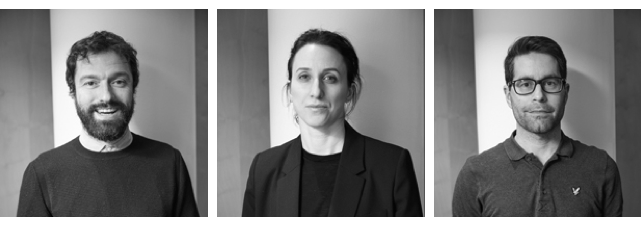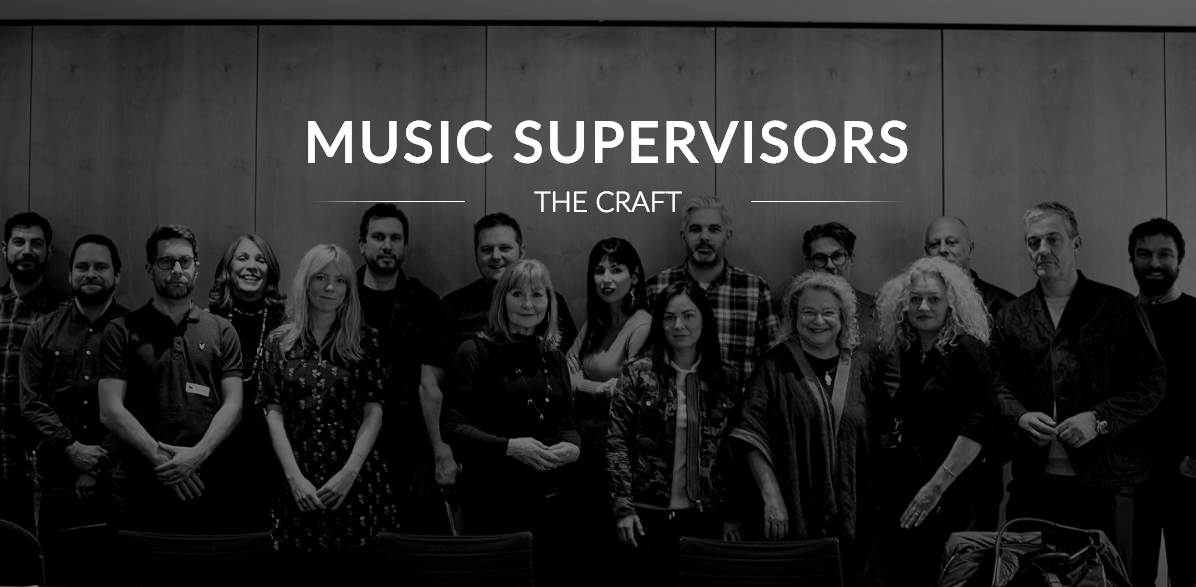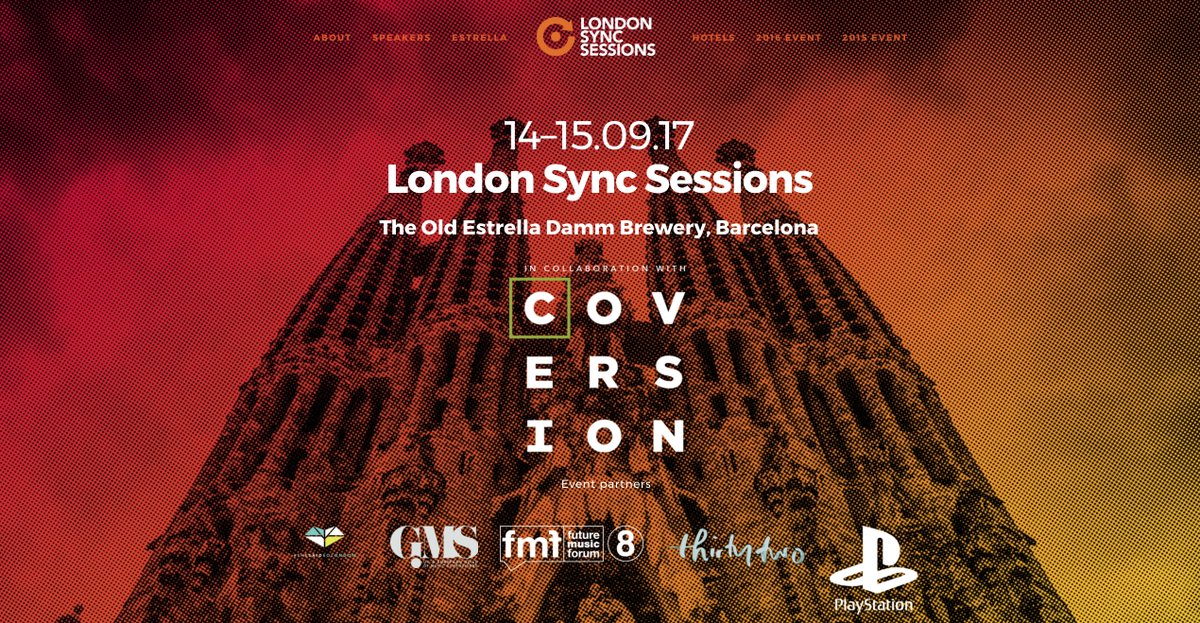Music supervisors may be getting more recognition and accreditation, but is the craft of music supervision really understood? An article penned by songwriter Patrick Duniven last year accused music supervisors of “killing real songwriting”, and understandably garnered a great deal of negative feedback from the supervisor community (check out Thomas Golubić’s response here).
With the foundations of our industry built on opinion, preference and subjectiveness, why is it more important than ever to understand the craft of a supervisor? Are composers, artists and rights-holders changing their musical identity to suit an imaginary mirage of “what is syncable”? At the London Sync Sessions in Barcelona next week, a panel of music supervisors will discuss these very issues and more during the “Supervisors are killing real songwriting – FAKE NEWS” panel.
Ahead of this panel, we chat to three prominent UK music supervisors about their own thoughts and experiences:

(L-R: Ian Cooke, Abi Leland, Duncan Smith)
What are the misconceptions about the craft of music supervision that frustrate you the most?
Abi: Music supervision is a multifaceted role and is much more than just having a good knowledge of music and a great record collection. (Check out Abi’s colleague at Leland Music Ed Bailie’s insight into the role and purpose of a music sup here).
How do you feel about artists adapting their music to make it more “syncable”?
Abi: I’ve never worked with a composer or artist who has specifically tried to write “sync friendly” music. The word “syncable” gets used a lot and it always makes me cringe. I’d like to think that nobody would approach their music in that way, but if anyone is considering this my advice would be that it won’t work and I can’t imagine it will make you happy, so don’t do it!
“The word “syncable” gets used a lot and it always makes me cringe. I’d like to think that nobody would approach their music in that way.”
– Abi Leland
Ian: I personally feel that supervisors will easily see through any cynical attempts to make recordings more “syncable”. Write with soul and integrity and this will shine through when we’re listening to new music.
Duncan: I think chasing the tail of what’s currently considered “syncable” is a losing game. I’d recommend bands stick to their guns and develop their own distinctive sound which makes brands and supervisors want to work with them – rather than risk losing their identity and fanbase diluting their sound.
The craft of music supervision is gradually getting more recognition, and this year saw the launch of the UK & European Guild of Music Supervisors. What do you hope to achieve through the Guild?
Ian: We hope to promote the craft of music supervision – by raising the awareness and understanding of the role of a music supervisor across the entertainment industries – film, television, gaming, advertising, trailers, interactive media and theatre. We want to raise professional standards – by having a community of supervisors lending their expertise, providing knowledge of the craft and the evolving media landscape and to hold masterclasses and seminars as well as regular networking opportunities.
We also aim to be a sync community resource – not just for emerging and established supervisors but the wider industry – anyone and any organisation whether directly or indirectly involved in sync – from record labels, publishers, sync agencies, artists, managers, composers, agents, film makers, ad producers – we believe they will all benefit by being members of the UK & European Guild of Music Supervisors.
We have a very unique industry here – where people are inclusive, cooperative, collaborative, supportive and our ambition is for the Guild to be an arena to share ideas, best practice and topical issues that concern the industry at large and to be an asset for all throughout the creative industries.
“Our ambition is for the Guild to be an arena to share ideas, best practice and topical issues that concern the industry at large and to be an asset for all throughout the creative industries.”
– Ian Cooke
Duncan: We aim to build on the great work of the US Guild to raise the profile and credibility of music supervision here in the UK and Europe. We want to raise standards and promote best-practice within supervision, as well as generally increase awareness of the value of music to clients. And generally encourage supervisors to get together, share knowledge and issues and have a unified voice when it matters.

Members of the UK & European Guild of Music Supervisors Advisory Board
What projects are you each currently working on?
Abi: We have got several exciting projects on at the moment – a feature documentary with the actor/director Jonny Owen, several Christmas campaigns, and various projects in their early stages with our composers signed to our composer agency Leland Originals.
Ian: I’m just finishing up an a fantastic, noirish 6 part thriller for BBC/HBO called RELLIK with an incredible score by Warp recording artist Clark where the story is played out in reverse a bit like Memento. I thoroughly recommend watching it.
Duncan: I’ve just finished working on the new Gran Turismo Sport and am currently working on Dreams, the boundary-pushing new game from Media Molecule. There’s also some exciting unannounced projects I’m working on…that unfortunately I can’t say anything about!
What’s the best use of music in visual media that you’ve seen so far this year?
Ian: I loved what music supervisor Peter Saville and director Bruce Goodison did on Born To Kill (Ch4), some of the best use of commercial music I’ve seen on a British TV series.
Duncan: I love the Baby Driver trailer remix by Mike Relm. Super cool audio-visual mash-up:

It’s clear that seeing sync as the be-all and end-all of a career is a mistake. What approach do you recommend that artists and rights-holders adopt?
Duncan: Sync can be an important revenue stream and an even more important way of getting exposure, however it’s just one part of the jigsaw. The driving factors should be making great music with a strong identity, gigging to build up a loyal fanbase and creating a buzz however you can. Then let people in the sync world know about the buzz you’ve created.
“Sync can be an important revenue stream and an even more important way of getting exposure, however it’s just one part of the jigsaw.”
– Duncan Smith
Ian: Synchronisation should be part of artists’ and rights-holders’ overall income strategy alongside touring, merchandising, as well as part of their overall profile strategy alongside PR, social media, showcases etc.
It’s not too late to get tickets to the London Sync Sessions 2017, why should people attend?
Ian: lt’s still 26 degrees out there at a time when the British weather has decided summer is over. Chance to hang out with like minded people in the sunshine for a few days while “working”, sounds good too me….
Duncan: Sun and sync. What’s not to like?!
Get discounted tickets to the London Sync Sessions now using the Guild’s code here
Liked this article? Check out our Q&A with music supervisor Janesta Boudreau
